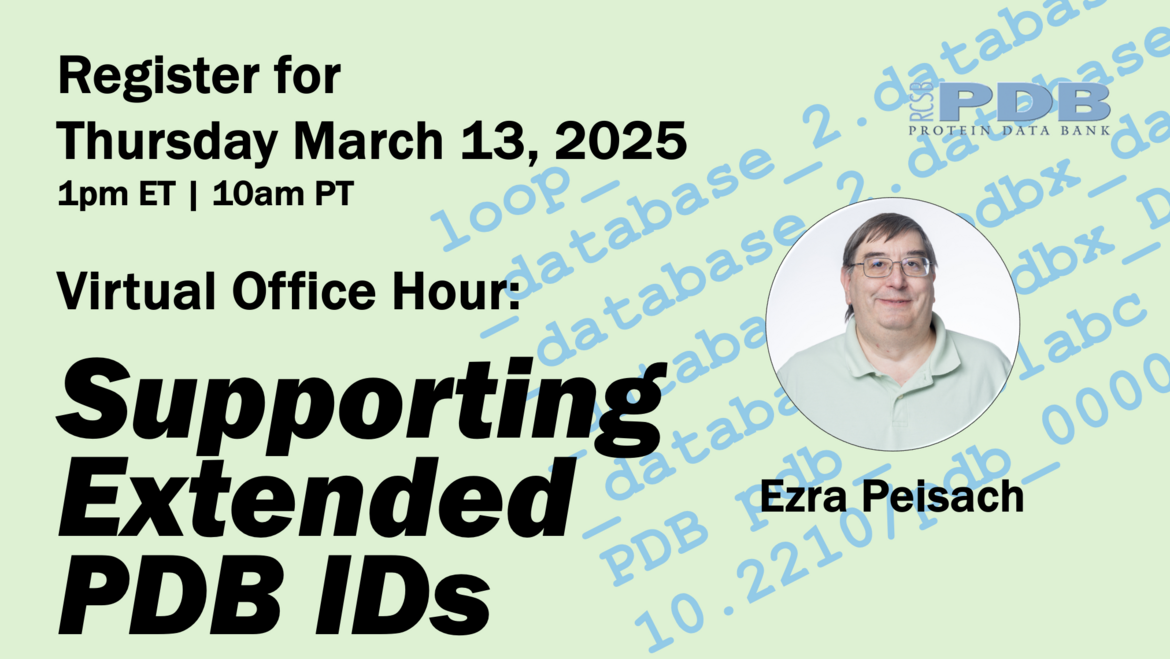Register for the March 13 Virtual Office Hour on Supporting Extended PDB IDs
02/10
wwPDB anticipates that all four-character PDB IDs will be exhausted by 2028, after which 12-character PDB IDs will be issued. Entries with extended PDB IDs will not be compatible with the legacy PDB file format and will only be available in PDBx/mmCIF format. wwPDB encourages users to transition to the PDBx/mmCIF format as soon as possible.
The revised PDB accession code format has extended length and prepended “PDB” (e.g., "1abc" will become "pdb_00001abc"). This process will enable text mining detection of PDB entries in the published literature and allow for more informative and transparent delivery of revised data files.
The wwPDB resource portal page (Extended PDB ID With 12 Characters) links to useful resources for this transition, including an FAQ on PDB ID extension, materials to learn more about PDBx/mmCIF format, and links to other PDBx/mmCIF resources and software tools. As the transition phase progresses, more training resources will be added.
Additionally, a PDB “beta” archive will be provided during the transition phase in 2026. The directory structure of this “beta” archive will mirror the data organization of the PDB Versioned Archive in the form of https://files-beta.org/pub/pdb/data/entries/two-letter-hash/pdb_accession_code/entry_data_File_names. The two-letter hash will be based on the n-2 and n-3 characters. For example, PDB entry PDB_12345678 will be under /67/. This will maintain consistency with the current PDB archive, where e.g. PDB entry 1abc is under /ab.
Bring any related questions to our virtual office hour with RCSB PDB's Ezra Peisach on
Thursday, March 13, 2025
1pm -2:00pm Eastern | 10:00am - 11am Pacific.
Please register for this free event. An institutional email address for registration is preferred.
You will receive confirmation and a Zoom link by email before the event.
Software developers who will need to make updates to code are encouraged to attend.
Past news and events have been reported at the RCSB PDB website and past Newsletters.




